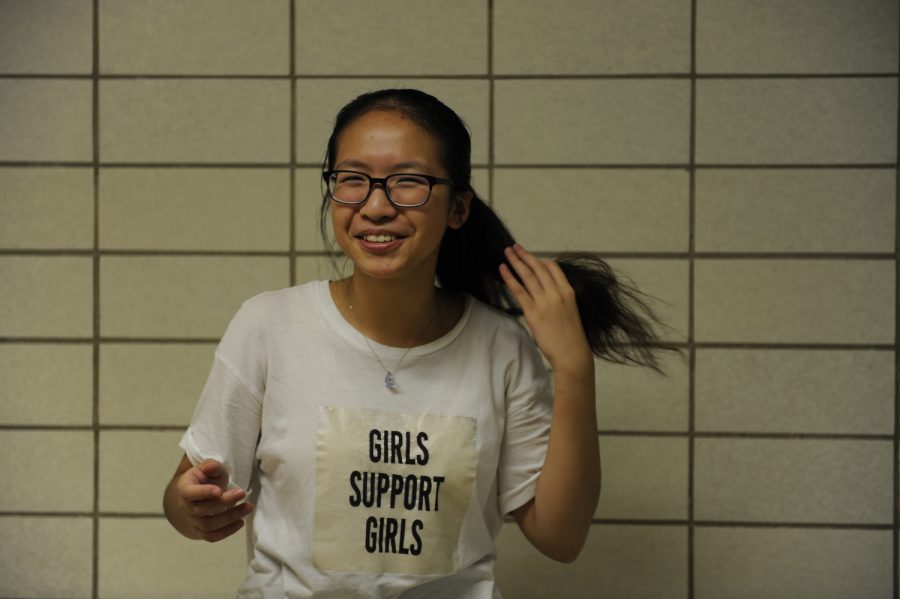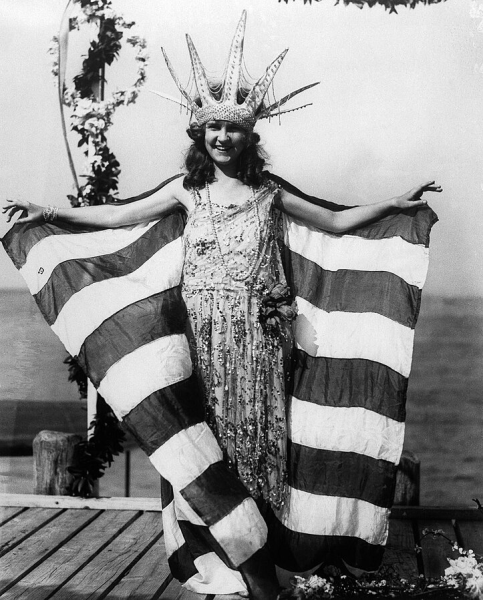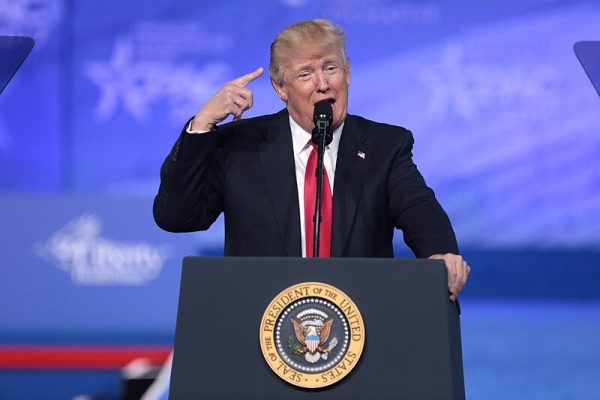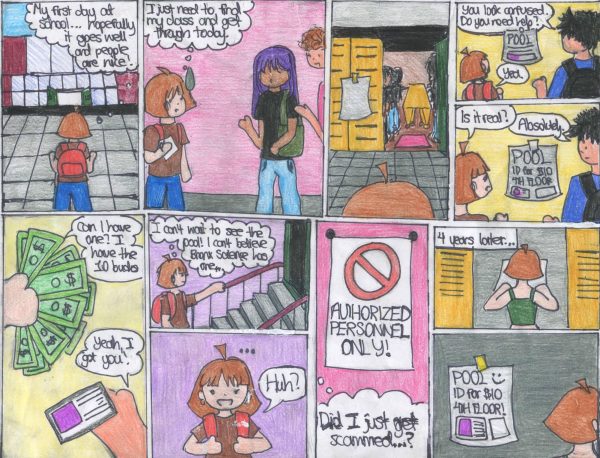Defining Feminism: What Does It Mean to Bronx Science Students?
Wendy Chen ‘20 wears a shirt stating, “GIRLS SUPPORT GIRLS.”
Feminism, according to the Merriam-Webster Dictionary, is “the theory of the political, economic, and social equality of the sexes.” Despite there being a set definition, many people still define the movement based on their own experiences and the media’s portrayal of feminists.
I interviewed Bronx Science students to see what their definitions of feminism are and was surprised to find such disparity in their answers. I asked them two questions: how do you define feminism, and what makes you define it that way? People seemed to be a little wary of answering these questions — often worrying that anything they said might be dissected and scrutinized, or that it would be seen as offensive. This results from an intolerant mindset, or as Alexander Gallagher ’21 said, from “toxic feminism [that] attacks others who disagree with their opinions and no longer represents what feminism should.”
Feminism is “absolute equality and intersectionality in all aspects of life,” said Chloe Frajmund ’19.
As Gallagher pointed out, this kind of feminism is “toxic,” since it does not allow room for contrasting opinions. People make the goal of true equality harder to obtain by inadvertently showing the feminist movement in a negative light. In keeping with these negative connotations, some Bronx Science students defined feminism as “the belief that women should have more power than men,” as Nishma Shakya ’20 said, when that definition does not, in fact, represent feminism’s stated mission: that there should be equality between the sexes. Shakya said that she defined feminism in this way, “based on what I have seen.” Some students said that they felt excluded from feminism because it seemed like it centered around Caucasian women. If this is the case, it further emphasizes the point of extremists and narrow-minded individuals mislabelling themselves as feminists and actually harming the movement.
However, while some viewed feminism as aggressive and radical, there were many students who considered it a positive force that promotes equality. Ibnul Nasif ’20 defined it as “equality for both [or] all genders,” saying he defined it this way because of “articles I’ve read, and what people have said [to me].” Alexander Gilson ’20 said he believed feminism means, “advocating for the rights of women,” based on what he had seen from “what [feminists] do. [Like] marches.” Gallagher added that his definition of the “good type of feminism…one that fights for equality in places where it is needed,” comes from “reading trusted news sources and being active on social media.” Lastly, Chloe Frajmund ’19 defined feminism as meaning, “absolute equality and intersectionality in all aspects of life,” saying she defined it this way “because I moved from New York to Brazil, a country with disturbingly high levels of sexual assault [and where] if you are a white woman you are far more likely to have more equal political and social rights than any woman of color.”
Though they were all asked to define the same term, all the students interviewed had contrasting ideas regarding the concept of feminism. The interviewees all have different backgrounds and have been exposed to a range of perspectives in the media that shape how they view the movement. Of course, there will never be one universal outlook, but we, as a student body, can work to change the movement’s reputation.
Some definitions of “feminism” do not represent equality and thus should not represent the movement. For example, feminism should not encourage any gender’s supremacy over the other and should always be intersectional. The goal of feminism is to advocate for equality of the sexes, but this cannot be achieved without advocating for equality for all women first.
Leann Goldberg is an Editor-in-Chief for ‘The Science Survey.’ She thinks journalistic writing is important because it allows the public to stay informed...











